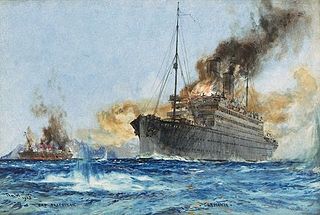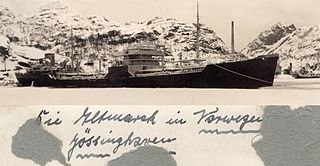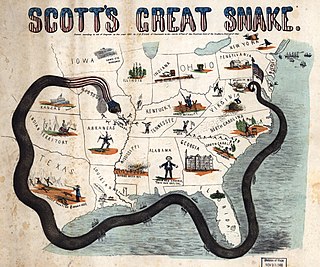
The law of war refers to the component of international law that regulates the conditions for war and the conduct of warring parties. Laws of war define sovereignty and nationhood, states and territories, occupation, and other critical terms of international law.

Merchant raiders are armed commerce raiding ships that disguise themselves as non-combatant merchant vessels.

An armed merchantman is a merchant ship equipped with guns, usually for defensive purposes, either by design or after the fact. In the days of sail, piracy and privateers, many merchantmen would be routinely armed, especially those engaging in long distance and high value trade.
The Paris Declaration Respecting Maritime Law of 16 April 1856 was a diplomatic policy agreed to by 55 nations. Written by France and Great Britain, its primary goal was to abolish privateering, whereby a belligerent party gave formal permission for armed privately owned ships to seize enemy vessels. It also regulated the relationship between neutral and belligerent and shipping on the high seas introducing new prize rules. They agreed on three major points: free ships make free goods, effective blockade, and no privateering. In return for surrendering the practice of seizing neutral goods on enemy ships, France insisted on Britain's abandoning its Rule of 1756 prohibiting neutral assumption of enemy coastal and colonial trade.
Angary is the name given to the right of a belligerent to seize and apply for the purposes of war any kind of property on belligerent territory, including that which may belong to subjects or citizens of a neutral state.

Altmark was a German oil tanker and supply vessel, one of five of a class built between 1937 and 1939. She is best known for her support of the German commerce raider, the "pocket battleship" Admiral Graf Spee and her subsequent involvement in the "Altmark Incident".
Napoleon I of France issued the Milan Decree on 17 December 1807 to enforce the Berlin Decree of 1806, which had initiated the Continental System. This system was the basis for his plan to defeat the British by waging economic warfare. The Milan Decree stated that no European country was to trade with the United Kingdom.
Pacific blockade is a term invented by Laurent-Basile Hautefeuille, a French writer on international maritime law, to describe a blockade exercised by a great power for the purpose of bringing pressure to bear on a weaker state without actual war. It can only be employed as a measure of coercion by maritime powers able to bring into action such vastly superior forces to those the resisting state can dispose of that resistance is out of the question.

The Union blockade in the American Civil War was a naval strategy by the United States to prevent the Confederacy from trading.
Freedom of navigation (FON) is a principle of customary international law that ships flying the flag of any sovereign state shall not suffer interference from other states, apart from the exceptions provided for in international law. This right is now also codified as article 87(1)a of the 1982 United Nations Convention on the Law of the Sea. Not all UN member states have ratified the convention; notably, the United States has signed, but not ratified the convention. However, the § United States enforces the practice; see below.

Prize is a term used in admiralty law to refer to equipment, vehicles, vessels, and cargo captured during armed conflict. The most common use of prize in this sense is the capture of an enemy ship and her cargo as a prize of war. In the past, the capturing force would commonly be allotted a share of the worth of the captured prize. Nations often granted letters of marque that would entitle private parties to capture enemy property, usually ships. Once the ship was secured on friendly territory, she would be made the subject of a prize case, an in rem proceeding in which the court determined the status of the condemned property and the manner in which the property was to be disposed of.
The term armed merchant ship may describe a number of similar ship modifications intended for significantly different missions. The term armed merchantman is generally used.
The Confederate privateers were privately owned ships that were authorized by the government of the Confederate States of America to attack the shipping of the United States. Although the appeal was to profit by capturing merchant vessels and seizing their cargoes, the government was most interested in diverting the efforts of the Union Navy away from the blockade of Southern ports, and perhaps to encourage European intervention in the conflict.

The first League of Armed Neutrality was an alliance of European naval powers between 1780 and 1783 which was intended to protect neutral shipping against the Royal Navy's wartime policy of unlimited search of neutral shipping for French contraband. British naval commanders followed their instructions with care, ordered away boarding parties and made seizures with impunity. Four-fifths of ships sailing, according to one estimate, made port in safety. But it was the loss of the other fifth which rankled. By September 1778, at least 59 ships were taken prize-8 Danish, 16 Swedish and 35 Dutch, not mentioning others from Prussia. Protests were enormous by every side involved.

The Battle of Tellicherry was a naval action fought off the Indian port of Tellicherry between British and French warships on 18 November 1791 during the Third Anglo-Mysore War. Britain and France were not at war at the time of the engagement, but French support for the Kingdom of Mysore in the conflict with the British East India Company had led to Royal Navy patrols stopping and searching French ships sailing for the Mysorean port of Mangalore. When a French convoy from Mahé passed the British port of Tellicherry in November 1791, Commodore William Cornwallis sent a small squadron to intercept the French ships.
Many legal assessments of the Gaza flotilla raid were published subsequent to the event. International law experts differed over the legality of the action by Israel. Most agree that Israel is entitled to impose and enforce a naval blockade, that Israel can intercept a ship in international waters headed for a belligerent territory, that Israel may use force when intercepting such ships, and that there must be a proportional relationship between the threat and response. The force necessary to respond to violent resistance and whether the force that was used was proportionate were disputed.
The San Remo Manual on International Law Applicable to Armed Conflicts at Sea was adopted in June 1994 by the International Institute of Humanitarian Law after a series of round table discussions held between 1988 and 1994 by diplomats and naval and legal experts. It is "the only comprehensive international instrument that has been drafted on the law of naval warfare since 1913."
The Steamship Appam, 243 U.S. 124 (1917), was a United States Supreme Court case in which the Court affirmed a lower court's decision to restore the British prize of a German warship to the British owners.

Fort Stikine was a British Fort ship which was built in Canada in 1942. Owned by the American War Shipping Administration, she was leased under charter to the Ministry of War Transport under the Lend-Lease scheme and operated under the management of the Port Line. Fort Stikine only had a short career, and was destroyed in an explosion at Bombay, India, in April 1944 that caused the loss of a further thirteen ships.












